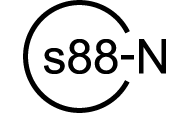BMD16N and BMD16N OPTO

The BMD16N is an improved feedback decoder for the S88-bus. There is also a version of the BMD16N with opto-isolated inputs: the BMD16N OPTO. And there are two versions with integrated current sensing: the BMD16N-SD and BMD16N-SD XL. All decoders use RJ-45 connectors and network cables for the S88-bus and they are fully compatible with the s88-N standard. The BMD16N and BMD16N OPTO can be used with all other S88 and s88-N decoders and equipment. The board has been developed in dialogue with one the initiators of s88-N, Wolfgang Kufer. More information on s88-N can be found on his website. Or take a look at s88-N.eu.

If you mount BMD16N decoders directly next to each other, a simple print connector or a few wires is all you need to connect the decoders. That will save you cables and money. The BMD16N also features an improved reset circuit. This eliminates possible errors even further.

The BMD16N has 16 contacts that react when connected to the ground terminal of your layout. This is the case when you use the decoder for occupancy detection on a 3-rail layout. But also if you prefer reed contacts or special contact tracks. The BMD16N will also come in handy when you set out to create a layout plan track control to work with a computer. The switches on the track control are connected to the BMD16N and via the S88-bus relayed to your system.

The big advantage of the BMD16N is the use of standard network cables to connect the S88-bus. Network cables are a lot cheaper than the standard S88 cables and are not as sensitive for electrical interference. You can connect the network cables directly to your central unit with the s88-N adapter. The adapter will also help you to connect older decoders to s88-N. The BMD16N is fully compatible with all other equipment with the s88-N logo.
Building the BMD16N and BMD16N OPTO

The BMD16N and BMD16N OPTO are do-it-yourself projects. The professional boards are being produced in a top facility. You can order them in the shop of Magica Miniatura. Please consult the extensive manual for the part list.
Connecting to S88 and s88-N
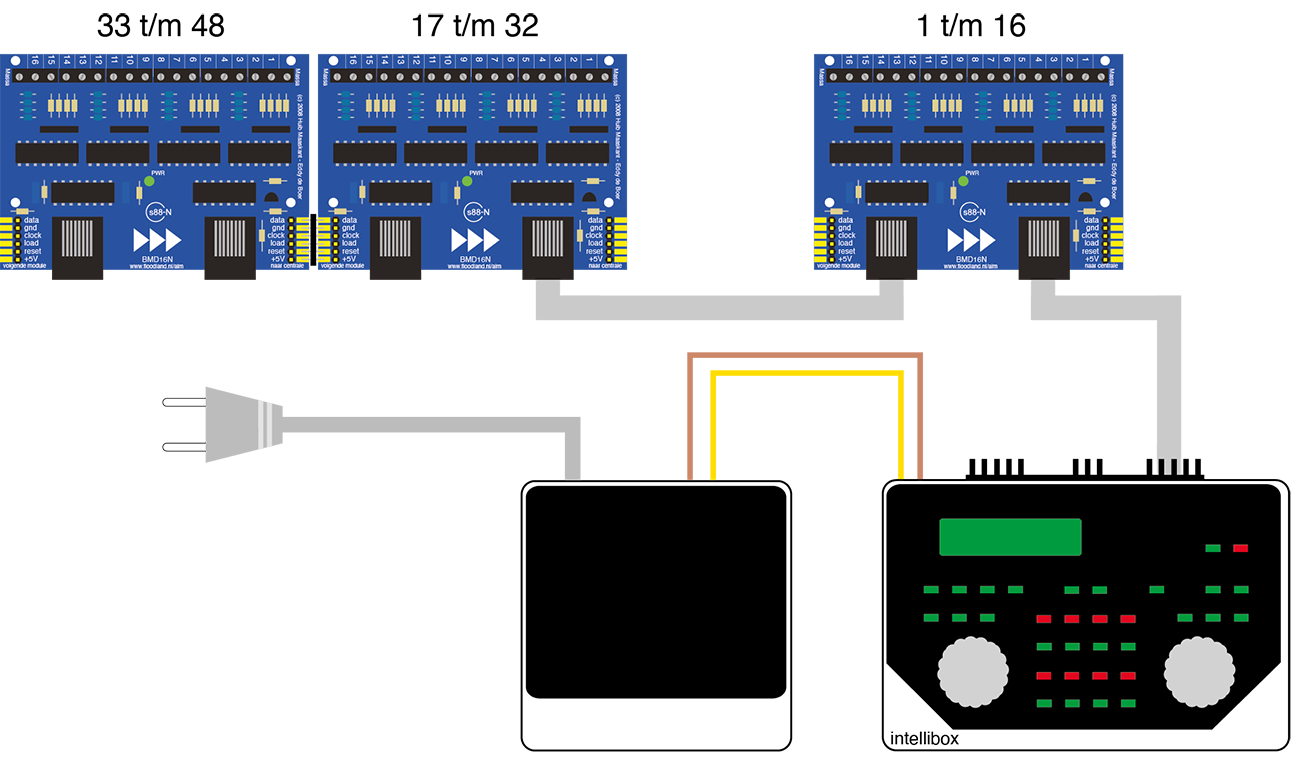
The feedback decoders are connected to the central unit as a chain. The order of the decoders determines how the contacts are numbered. The first decoder has contacts 1 to 16, the second one 17 to 32, etc. You can connect up to 31 decoders with 16 contacts to the S88-bus.
Connecting the BMD16N
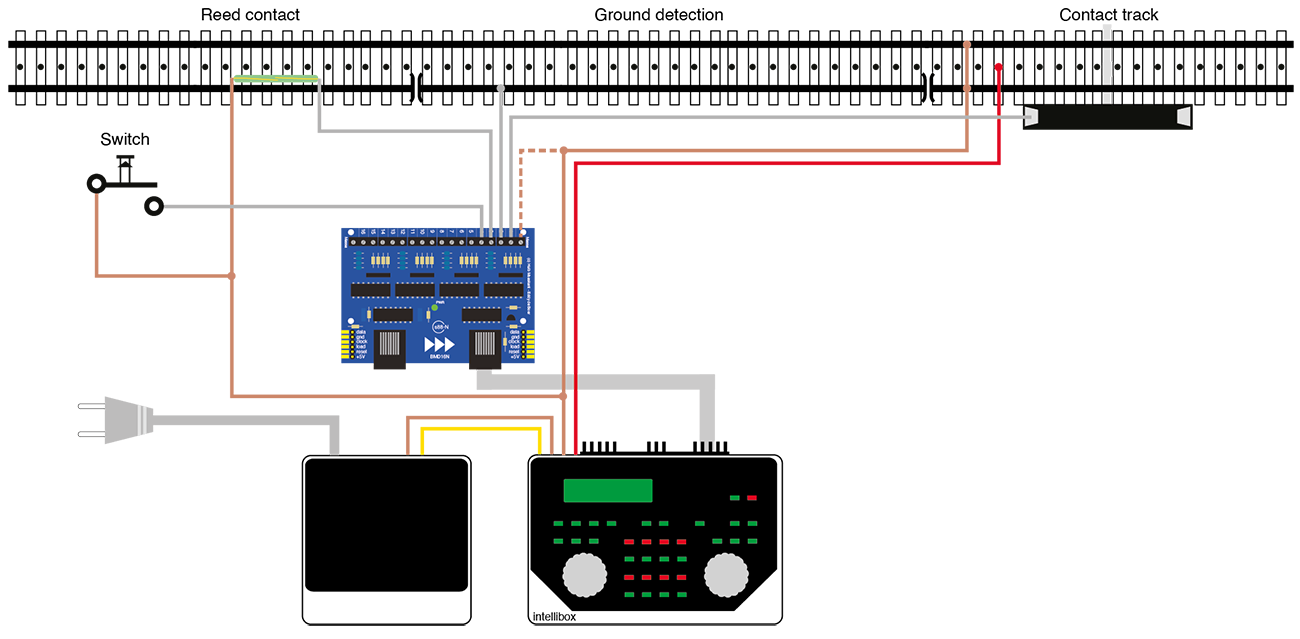
If you own a 3-rail layout, you will probably use the BMD16N for occupancy detection via ground detection. This is by far the easiest and most reliable way to know where your trains are. You could also use reed contacts or special contact tracks, but these are less reliable and they do not generate a permanent signal for an occupied track. You cannot use these options to detect e.g. a car left behind. Furthermore, you can connect ordinary switches to the BMD16, for example for a layout plan track control or a emergency stop switch.
Connecting the BMD16N OPTO
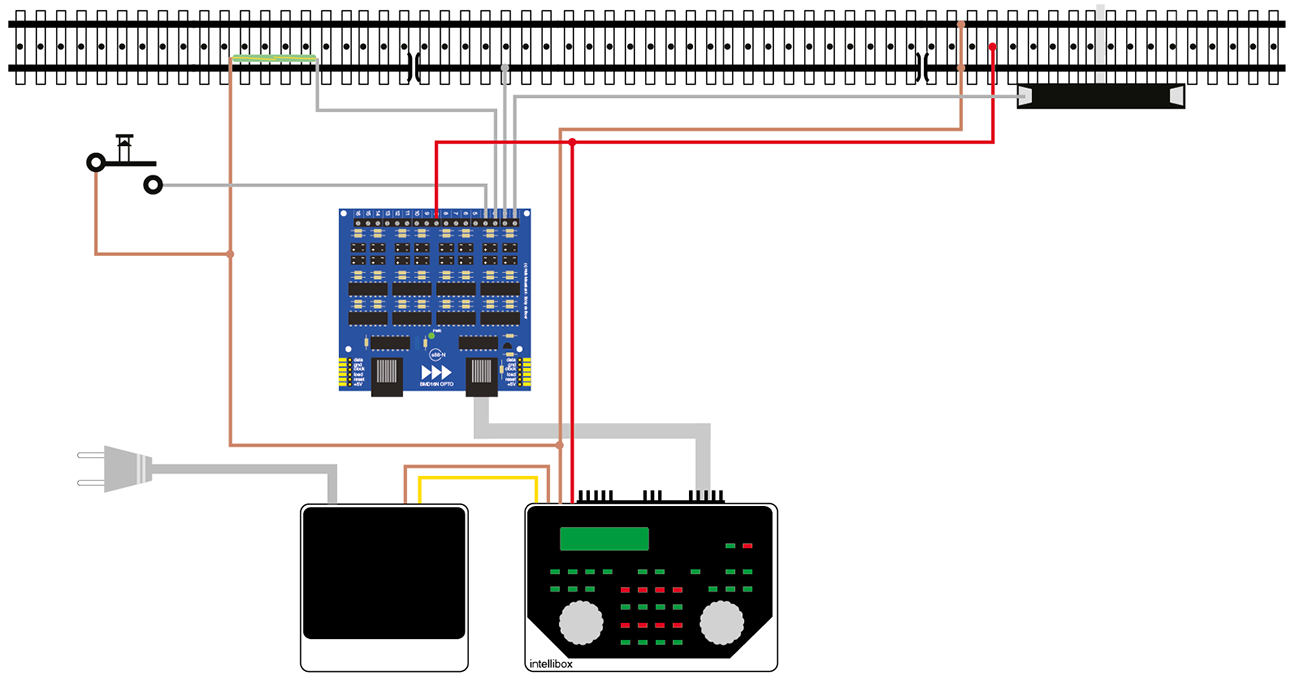
There is one major difference when it comes to hooking up the BMD16N OPTO: you have to connect the center terminal to the red (positive) wire of your command station. Apart from that, eveything is the same.
Testing

The BMD16N can be tested with a simple wire. Connect the decoder to the S88-bus of your central unit and call up the menu that displays the status of the feedback decoders. Connect the ground terminal of the central unit with the ground terminal of the decoder. Touch each of the outputs with a ground wire and check if the feedback status changes to occupied.
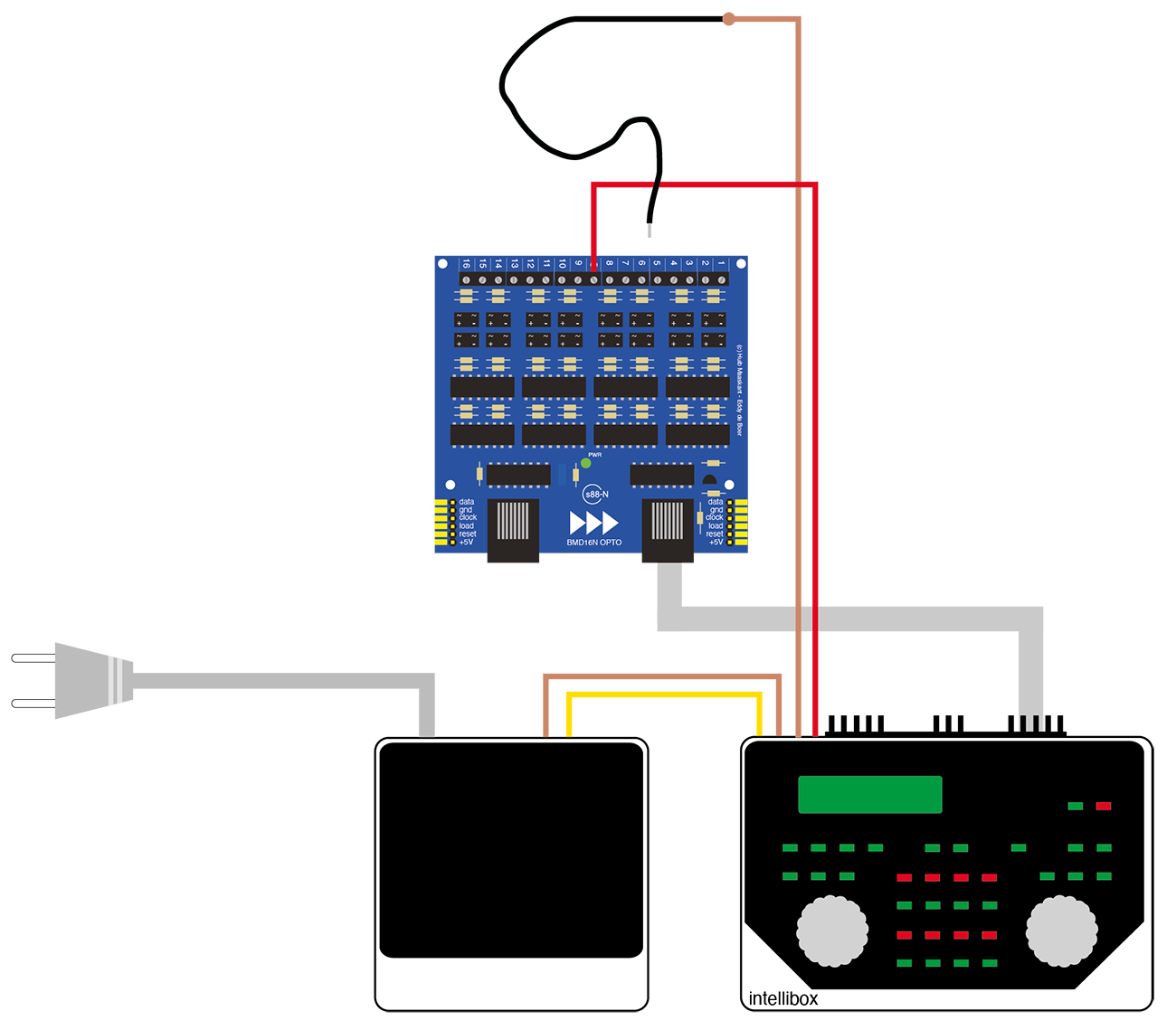
The BMD16N OPTO can be tested in the same way, but please note the connection to the center terminal.
Please note: The BMD16N - and every other S88 feedback encoder without optocouplers - cannot be used with the command stations from Digikeijs and YaMoRC, or any other command station with an H-bridge. Use the BMD16N OPTO instead.
Boards are available from the shop at Magica Miniatura.
2008, 2012, 2018, 2025
BMD16N Features
Improved feed back decoder with 16 contacts for the S88-bus
Suited for all model railroads, gauge II to Z
Compatible with a.o. Märklin Digital, Uhlenbrock Intellibox, ESU ECoS and LDT HSI-88
Compatible with the s88-N standard and all other s88-N equipment
Connect the S88-bus via standard S88 cables or reliable network cables
Other BMD16N/BMD16N-SD decoders can be directly connected sideways
Even further reduced risk of errors thanks to improved reset circuit
Sturdy screw connectors
Easy to assemble for everyone with some soldering experience
Extensive printed manual with step by step assembly plan
Already thousands in use around the world
Download
View or download the manual.
